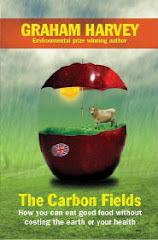Producers of GM seed have found a new way of sneaking out propaganda about their unpopular technology – they’re targeting business editors who aren’t normally too clued up on farming. How else can you explain a full page report in the world business section of The Times today warning of the possible collapse of
We’re told that shortages of grain for animal feed – together with high prices – are “wreaking havoc” on livestock production, causing pig and poultry farmers to cut back their output. According to the report the EU imports 80 per cent of its protein feeds mostly as GM soya and “corn”. It seems the main producing countries – the
To me the article looks like a classic piece of scare-mongering on behalf of the GM companies and global commodity traders. I checked with a couple of farming friends. They agreed that soya supplies were tight but said it had “naff-all” to do with GM approvals. It’s simply that rocketing Chinese demand for protein grains is putting a strain on supplies. While this may be disruptive, it’s hardly likely to lead to the destruction of civilisation as we know it.
For decades now the EU has produced vast surpluses of feed grains. It could easily substitute home-grown protein grains for the cheap American soya the livestock industry has now become addicted to. The
What’s wrong with turning over some of the land to producing our own protein feeds – traditional crops like beans and peas? These were the proteins British farmers put in their animal feeds before they acquired their
Maybe business editors should talk to farmers more often and rely less heavily on briefings from the GM industry.
[1] ‘


No comments:
Post a Comment